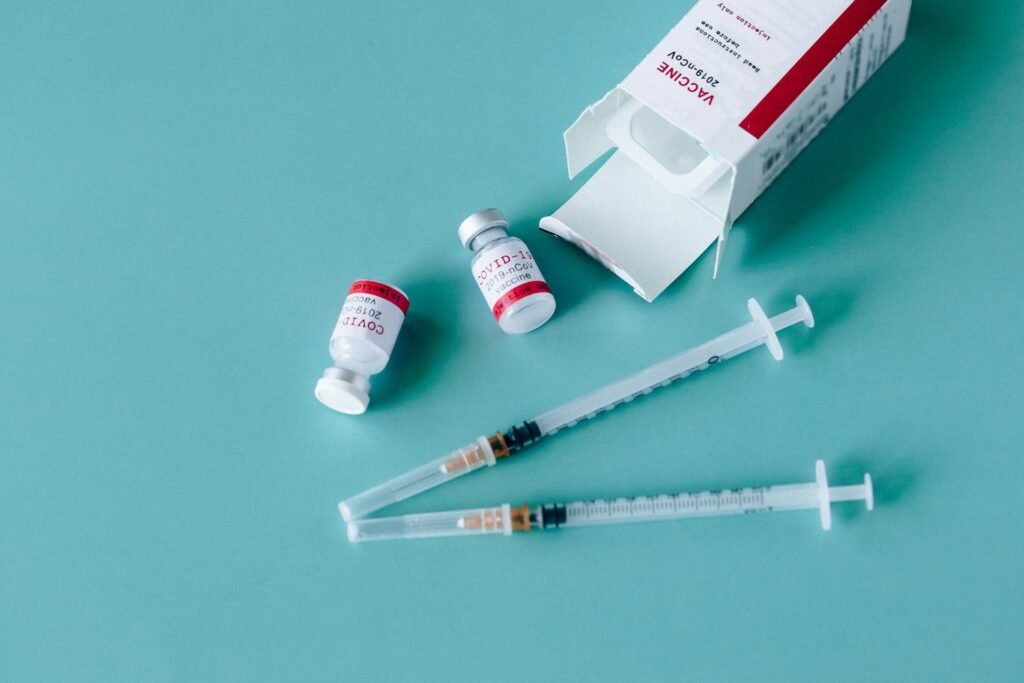Introduction
As we navigate the challenges and opportunities of 2024, maintaining good health has never been more critical for Nigerians. The fast-paced lifestyle, combined with the rising prevalence of chronic diseases, makes it essential to adopt proactive healthcare strategies. This article offers the top 10 healthcare tips specifically tailored for Nigerians, designed to help you achieve optimal health and well-being. These tips are based on the latest health trends, research, and the unique needs of the Nigerian population, ensuring they are both practical and effective.
Importance of Health in 2024
In 2024, health is more than just the absence of illness; it’s a state of complete physical, mental, and social well-being. With the ongoing changes in healthcare access, environmental factors, and dietary habits in Nigeria, focusing on health is crucial. Good health enhances quality of life, productivity, and longevity, enabling individuals to contribute positively to their communities and the nation. Prioritizing health in 2024 means staying informed, making conscious lifestyle choices, and taking preventive measures against common health challenges.
Overview of Nigerian Health Landscape
The Nigerian health landscape in 2024 is shaped by a mix of traditional practices and modern healthcare advances. While there are improvements in healthcare infrastructure and access, challenges such as non-communicable diseases, infectious diseases, and healthcare disparities persist. Urbanization, climate change, and dietary shifts are influencing health trends, making it vital to address both emerging and existing health concerns. This article reflects the current health landscape, offering tips that are relevant to Nigerians’ everyday lives.
How to Use this Guide
This guide is designed to be a practical resource for improving your health in 2024. Each tip is tailored to the Nigerian context, making it easy to integrate into your daily routine. Whether you’re looking to improve your diet, increase physical activity, or enhance your mental well-being, this guide provides actionable steps to help you achieve your health goals. Use it as a reference to make informed decisions, set realistic health objectives, and track your progress throughout the year.
Tip 1: Balanced Diet

A balanced diet is the cornerstone of good health, providing the body with essential nutrients needed for growth, energy, and overall well-being. For Nigerians, incorporating a variety of food groups ensures that meals are nutritionally complete. Key Nutrients for Nigerian Diets include carbohydrates for energy, proteins for muscle repair and growth, healthy fats for brain function, and vitamins and minerals to boost the immune system. Staples like yam, rice, beans, and plantain, combined with vegetables like ugu, spinach, and fruits like oranges and mangoes, create a nutrient-rich diet.
Practical Meal Planning is crucial for maintaining a balanced diet. It involves preparing meals that combine various food groups in appropriate portions. For example, a typical Nigerian meal could include rice (carbohydrate), fish (protein), and a vegetable sauce, ensuring a balanced intake of essential nutrients. Planning meals ahead also helps in managing portion sizes and avoiding unhealthy snacking.
Healthy Nigerian Recipes can be both nutritious and delicious. Dishes like moi moi (steamed bean pudding), efo riro (spinach stew), and ofada rice with grilled chicken offer traditional flavors while providing balanced nutrition. Emphasizing the use of fresh ingredients and minimizing processed foods can enhance the health benefits of these meals.
TIP 2: Regular Exercise

Regular exercise is a cornerstone of maintaining good health and well-being, especially in an era where sedentary lifestyles are becoming increasingly common. For Nigerians in 2024, staying active is essential for preventing and managing a wide range of health issues.
Benefits of Physical Activity are extensive, including reducing the risk of chronic diseases such as heart disease, diabetes, and hypertension. Exercise also promotes mental health by reducing stress, anxiety, and depression, and it enhances cognitive function. Additionally, regular physical activity improves cardiovascular health, strengthens muscles and bones, aids in weight management, boosts energy levels, and enhances sleep quality.
Exercise Routines for All Ages should be tailored to meet the needs of different life stages. For children and teenagers, activities like running, cycling, and playing sports not only support physical development but also encourage social interaction and teamwork. Adults should focus on a mix of aerobic exercises (like jogging, swimming, or dancing) and strength training (such as weightlifting or resistance exercises) to maintain muscle mass and cardiovascular health. For older adults, low-impact activities such as walking, yoga, or tai chi are ideal for maintaining flexibility, balance, and joint health, thereby reducing the risk of falls and injuries.
Incorporating Exercise into Daily Life is key to making it a sustainable habit. Nigerians can integrate physical activity into their routines by choosing to walk or bike to work, using stairs instead of elevators, or engaging in active hobbies like gardening or dancing. Establishing a regular exercise schedule, such as morning walks or evening workouts, helps create consistency. Joining local gyms, fitness groups, or community sports leagues can also provide motivation and social support, making exercise a regular and enjoyable part of everyday life.
Tip 3: Regular Health Check-Ups

Regular health check-ups are a vital component of preventive healthcare, allowing for the early detection and management of potential health issues before they become severe. In 2024, as healthcare awareness grows in Nigeria, it’s crucial to emphasize the Importance of Routine Screenings. Routine screenings can identify conditions like hypertension, diabetes, high cholesterol, and certain cancers in their early stages when they are most treatable. Regular check-ups also provide an opportunity to monitor ongoing health conditions, adjust treatments, and discuss any new symptoms with a healthcare provider.
Recommended Health Checks for Nigerians should be tailored to individual risk factors, such as age, family history, and lifestyle. Key screenings include blood pressure monitoring, blood sugar tests for diabetes, cholesterol levels, and body mass index (BMI) assessments. Women should also have regular Pap smears and breast exams, while men should consider prostate exams as they age. Additionally, both men and women should undergo screenings for hepatitis, HIV, and other infectious diseases prevalent in Nigeria. Eye and dental exams are also important for maintaining overall health.
How to Schedule and Prepare for Check-Ups is crucial for maximizing the benefits of these visits. Nigerians should be proactive in scheduling regular appointments with their healthcare providers, ideally once a year or as recommended based on individual health needs. Preparation involves gathering relevant medical records, listing current medications, and noting any symptoms or concerns to discuss during the visit. Fasting may be required for certain tests, so it’s important to follow any pre-appointment instructions. By staying organized and informed, Nigerians can make the most of their check-ups, ensuring they maintain good health throughout the year.
Tip 4: Mental Health Awareness

Mental health is as important as physical health, yet it often receives less attention. In 2024, raising Mental Health Awareness in Nigeria is crucial as societal pressures, economic challenges, and lifestyle changes continue to impact people’s well-being. Understanding and addressing mental health issues can prevent them from escalating into more serious conditions, such as depression or severe anxiety disorders. Mental health awareness involves recognizing the signs of mental distress, understanding its impact on daily life, and seeking appropriate help when needed.
Recognizing Mental Health Issues is the first step in addressing them. Common signs include persistent sadness, extreme mood swings, changes in sleep or eating patterns, withdrawal from social activities, and difficulty concentrating. In Nigeria, cultural stigmas around mental health can lead to denial or neglect of these symptoms, making it vital to educate individuals and communities about the importance of mental well-being. Recognizing these issues early allows for timely intervention, which can significantly improve outcomes.
Strategies for Managing Stress and Anxiety are essential in maintaining mental health. Stress and anxiety are common, particularly in fast-paced environments, but they can be managed with effective coping mechanisms. Techniques such as regular exercise, mindfulness meditation, and proper time management can help reduce stress. Additionally, building strong support networks of family and friends provides emotional support during challenging times. It’s also important to practice self-care by engaging in activities that promote relaxation and joy.
Resources for Mental Health Support are increasingly available, though accessing them can still be challenging in some parts of Nigeria. Individuals can seek help from mental health professionals such as psychologists, counselors, and psychiatrists. Many hospitals and clinics now offer mental health services, and there are also helplines and online platforms providing support. Community-based organizations and religious institutions can also offer support, helping to reduce the stigma associated with seeking help. By utilizing these resources, Nigerians can take proactive steps towards improving and maintaining their mental health.
Tip 5: Adequate Hydration

Adequate hydration is fundamental to maintaining good health, yet it is often overlooked in daily routines. In a hot and humid climate like Nigeria’s, staying properly hydrated is even more critical. Benefits of Staying Hydrated include improved digestion, better skin health, enhanced cognitive function, and optimal physical performance. Water helps regulate body temperature, lubricates joints, and aids in the elimination of waste products through urine and sweat. Proper hydration also supports cardiovascular health by ensuring that the heart doesn’t work as hard to pump blood throughout the body.
Daily Water Intake Recommendations vary depending on factors such as age, weight, activity level, and climate. For most Nigerians, the general guideline is to drink at least 2 to 3 liters of water per day, which is approximately 8 to 12 cups. However, those who are physically active, pregnant, or breastfeeding, or who spend long periods outdoors may require more. It’s important to note that beverages like tea, fruit juices, and even watery foods like fruits and vegetables also contribute to daily hydration needs.
Tips for Increasing Water Consumption can help individuals meet their hydration goals. Start the day with a glass of water to kick-start hydration and set reminders to drink water regularly throughout the day. Carrying a reusable water bottle can make it easier to drink water on the go. Adding slices of fruits like lemon, cucumber, or mint leaves can make water more appealing for those who find plain water unexciting. Additionally, substituting sugary drinks with water not only boosts hydration but also reduces calorie intake, supporting overall health. By making conscious efforts to stay hydrated, Nigerians can enhance their well-being and maintain better health throughout the year.
Tip 6: Quality Sleep

Quality sleep is essential for overall health and well-being, yet it is often neglected in the hustle and bustle of daily life. The importance of Sleep for Health cannot be overstated—sleep plays a critical role in physical recovery, mental clarity, and emotional stability. During sleep, the body repairs tissues, strengthens the immune system, and consolidates memories, which is vital for learning and productivity. Poor sleep, on the other hand, is linked to an increased risk of chronic conditions such as obesity, diabetes, cardiovascular disease, and mental health issues like anxiety and depression.
Tips for Improving Sleep Quality are key to ensuring that individuals get the restorative rest they need. Establishing a regular sleep schedule by going to bed and waking up at the same time every day helps regulate the body’s internal clock. Creating a relaxing bedtime routine, such as reading, meditating, or taking a warm bath, signals the body that it’s time to wind down. It’s also important to create a sleep-friendly environment—this includes keeping the bedroom dark, quiet, and cool, and ensuring that the mattress and pillows are comfortable. Limiting exposure to screens and bright lights before bedtime can also improve sleep quality.
Dealing with Sleep Disorders is crucial for those who struggle with consistent, restful sleep. Common sleep disorders include insomnia, sleep apnea, and restless leg syndrome, which can severely impact health if left untreated. For those experiencing persistent sleep difficulties, it’s important to seek medical advice. Treatment options may include cognitive-behavioral therapy for insomnia (CBT-I), the use of continuous positive airway pressure (CPAP) devices for sleep apnea, or medication in some cases. Addressing these issues promptly can significantly improve sleep quality and, in turn, overall health. By prioritizing good sleep hygiene and seeking help when necessary, Nigerians can enhance their health and well-being in 2024 and beyond.
Tip 7: Personal Hygiene

Personal hygiene is a fundamental aspect of maintaining good health and preventing the spread of diseases. In Nigeria, where infectious diseases remain a significant public health challenge, prioritizing hygiene is crucial. Basic Hygiene Practices include regular handwashing with soap and water, especially before eating, after using the restroom, and after handling potentially contaminated objects. Daily bathing helps remove dirt, sweat, and bacteria from the skin, while brushing teeth at least twice a day prevents oral health issues. Proper grooming, including hair and nail care, also plays a role in maintaining hygiene. Keeping living spaces clean, disposing of waste properly, and ensuring food is prepared in a sanitary environment are essential for overall health.
Preventing Common Illnesses through Hygiene is particularly important in a country where diseases like cholera, typhoid, and malaria are prevalent. Handwashing is one of the most effective ways to prevent the transmission of pathogens that cause diarrheal diseases. Proper sanitation practices, such as using clean water and maintaining clean toilets, are key to preventing the spread of these illnesses. In addition, regular washing of clothes and bedding reduces the risk of skin infections and infestations, such as scabies or lice. Ensuring that food is cooked thoroughly and stored properly prevents foodborne illnesses, which are common in environments with high temperatures.
Cultural Considerations and Practices play a significant role in how hygiene is maintained in different communities across Nigeria. Cultural norms and traditions influence practices like handwashing, bathing, and food preparation. For example, in some communities, traditional bathing practices may involve the use of specific herbs or oils, which can contribute to overall cleanliness. However, it is important to balance these practices with modern hygiene standards to ensure optimal health outcomes. Public health campaigns should be culturally sensitive and incorporate traditional practices where possible, while also promoting the benefits of regular hygiene practices. By understanding and respecting cultural contexts, hygiene education can be more effective in improving health outcomes across Nigeria.
Tip 8: Preventive Healthcare

Preventive healthcare is essential for maintaining health and well-being by addressing potential health issues before they become severe. In Nigeria, where healthcare resources can be limited, focusing on prevention is particularly important. Importance of Vaccinations cannot be overstated—they are one of the most effective ways to prevent life-threatening diseases. Vaccines protect individuals from diseases such as polio, measles, hepatitis, and more recently, COVID-19. Widespread vaccination also contributes to herd immunity, reducing the overall prevalence of infectious diseases in the community. For Nigerians, keeping up with the recommended vaccination schedule, including booster shots, is crucial for individual and public health.
Preventing Infectious Diseases involves more than just vaccinations; it also includes maintaining good hygiene, practicing safe behaviors, and understanding how diseases spread. Simple measures like regular handwashing, using mosquito nets to prevent malaria, and practicing safe food and water consumption can drastically reduce the risk of contracting illnesses. In addition, wearing masks in crowded places and maintaining social distancing can help prevent the spread of respiratory infections. Preventive measures should also include regular health screenings to catch any potential issues early and to manage chronic conditions effectively.
Health Education and Awareness are key components of a successful preventive healthcare strategy. Educating the public about the importance of vaccinations, hygiene practices, and regular health check-ups empowers individuals to take control of their health. Health education should be culturally sensitive and accessible, utilizing local languages and addressing community-specific health challenges. Awareness campaigns through media, schools, and community programs can help dispel myths and misinformation, encouraging more people to adopt preventive measures. By improving health literacy, Nigerians can make informed decisions about their health, leading to better outcomes and a healthier nation overall.
Tip 9: Healthy Lifestyle Choices

Making healthy lifestyle choices is essential for preventing chronic diseases and improving overall well-being. In Nigeria, where lifestyle-related illnesses like hypertension, diabetes, and cancer are on the rise, adopting healthier habits is more important than ever. Avoiding Tobacco and Excessive Alcohol is a crucial part of maintaining a healthy lifestyle. Tobacco use is a leading cause of preventable deaths, contributing to lung cancer, heart disease, and respiratory issues. Quitting smoking or avoiding tobacco altogether can significantly reduce these health risks. Similarly, excessive alcohol consumption is linked to liver disease, high blood pressure, and an increased risk of accidents and injuries. Moderation is key—limiting alcohol intake can help protect against these adverse effects and contribute to long-term health.
Benefits of a Smoke-Free Lifestyle are numerous and immediate. Within days of quitting smoking, lung function begins to improve, and the risk of heart attack decreases. Long-term benefits include a significantly reduced risk of lung cancer, stroke, and respiratory diseases. Additionally, a smoke-free lifestyle improves overall fitness, enhances taste and smell, and promotes better skin health. For those already dealing with health issues, quitting smoking can lead to faster recovery and better management of chronic conditions. The social benefits of quitting smoking, such as improved relationships and a positive influence on others, also contribute to a healthier environment for everyone.
Reducing Risky Behaviors is another important aspect of making healthy lifestyle choices. This includes practicing safe sex to prevent sexually transmitted infections (STIs), using seat belts and helmets to reduce the risk of injury in accidents, and avoiding drug abuse. Engaging in regular physical activity, eating a balanced diet, and managing stress effectively also contribute to reducing the risk of chronic diseases. By making informed choices and avoiding risky behaviors, Nigerians can protect their health and lead longer, healthier lives. Education and awareness are key to encouraging healthier behaviors and empowering individuals to take control of their health in 2024 and beyond.
Tip 10: Community Health Initiatives

Community health initiatives play a vital role in improving public health outcomes by addressing local health challenges through collective action. In Nigeria, where healthcare resources can be stretched thin, community-based programs are essential for reaching underserved populations and promoting health equity. Importance of Community Health Programs lies in their ability to address specific health issues that are prevalent in particular regions, such as malaria in rural areas or hypertension in urban centers. These programs often focus on prevention, education, and early detection, which can significantly reduce the burden of disease. Community health initiatives also foster a sense of ownership and responsibility among residents, encouraging them to take an active role in their health and well-being.
How to Get Involved in Local Health Initiatives is crucial for those looking to make a positive impact on their community. Individuals can participate in various ways, such as volunteering at local health clinics, participating in health education workshops, or supporting vaccination drives. Joining or forming health advocacy groups that focus on issues like maternal health, mental health awareness, or disease prevention can also be effective. Collaboration with local government agencies, non-governmental organizations (NGOs), and religious or community leaders can help amplify these efforts. By getting involved, individuals not only contribute to the betterment of their community but also gain valuable knowledge and skills that can enhance their personal health.
Success Stories from Nigerian Communities highlight the positive outcomes that can result from community health initiatives. For example, in some rural areas, community-led malaria prevention programs that distribute insecticide-treated bed nets and educate residents about mosquito control have significantly reduced malaria incidence. In urban areas, grassroots movements promoting blood pressure screenings and healthy lifestyle choices have helped lower rates of hypertension and related complications. These success stories demonstrate the power of community engagement in improving health outcomes and show that collective action can lead to sustainable health improvements. By learning from these examples and building on their successes, other communities in Nigeria can implement similar programs to address their unique health challenges in 2024 and beyond.
Conclusion
As we look ahead to 2025, prioritizing health and well-being is more important than ever for Nigerians. These Healthcare Tips underscores the critical steps everyone can take to maintain and improve their health. A balanced diet rich in essential nutrients is the foundation of good health, while regular exercise helps to keep the body strong and resilient. Regular health check-ups allow for early detection and management of potential issues, and mental health awareness is crucial for managing stress and maintaining emotional balance. Adequate hydration, quality sleep, and personal hygiene are everyday practices that contribute significantly to overall well-being. Preventive healthcare, including vaccinations and health education, plays a vital role in safeguarding against diseases, while making healthy lifestyle choices, such as avoiding tobacco and excessive alcohol, reduces the risk of chronic conditions. Finally, community health initiatives emphasize the power of collective action in improving public health.
Embracing these healthcare tips is not just about individual well-being; it’s about building a healthier, more vibrant society. By taking proactive steps today, Nigerians can ensure a better quality of life for themselves and future generations. The journey to better health is ongoing, and every small change adds up to significant benefits. Whether it’s choosing to eat more fruits and vegetables, engaging in regular physical activity, or participating in local health initiatives, every effort counts. As we move forward into 2025, let’s commit to making health a priority, supporting one another in these efforts, and creating a healthier, more prosperous Nigeria for all.




This is great,
Thank you